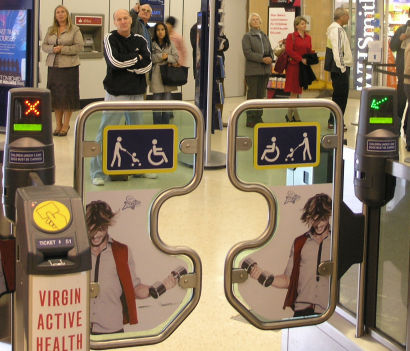ATOC has been defending New Year changes to ticket prices, which include a general reduction in regulated fares but some sharp rises elsewhere. Passenger Focus is accusing some operators of 'fiddling with ticket restrictions'.
Regulated fares are falling because the Retail Price Index stood at minus 1.4 per cent last July -- when the level of the index is used to decide fare changes in the following January.
The formula set by the Department for Transport -- RPI plus 1 per cent -- means that regulated fares, which include most commuter tickets, have fallen by 0.4 per cent. But some unregulated fares, which include intercity tickets, have risen by much more than the rate of inflation. In other cases operators have tightened their restrictions on when discounted fares apply.
A London to Manchester Anytime return increases by 6 per cent, from £247 to £262, and a return from London to Cardiff goes up by 5.8 per cent, from £173 to £183.
Virgin Trains has slightly lengthened the morning and evening periods during which off-peak tickets are barred, while London Midland has introduced a ban on off-peak tickets for journeys in the London and Birmingham suburban areas during the late afternoon and early evening.
Anthony Smith of Passenger Focus is concerned. He said: "After punishing year-after-year price rises, passengers can finally look forward to small savings on their season tickets. Passengers will be pleased that the Government took our advice and limited train companies’ flexibility to raise individual regulated fares. What is concerning though, is that companies are tinkering with off-peak ticket restrictions, effectively forcing passengers into buying more expensive tickets.”
However, the chief executive of the Association of Train Companies is defending the changes. Michael Roberts said fares would rise by an average of 1.1 per cent, which is lower than the inflation rate predicted for this year. "The reality is that the vast majority of people travelling by rail will see a fall, no rise or an increase below inflation. By picking out changes that affect a small minority of people, Passenger Focus and the unions are giving a very partial impression," he said.
Meanwhile, Oyster smartcards can now be used at National Rail stations in Greater London from 2 January, but some Transport for London fares have risen in real terms.
The ups and downs of fares: ATOC defends changes
3rd January 2010


